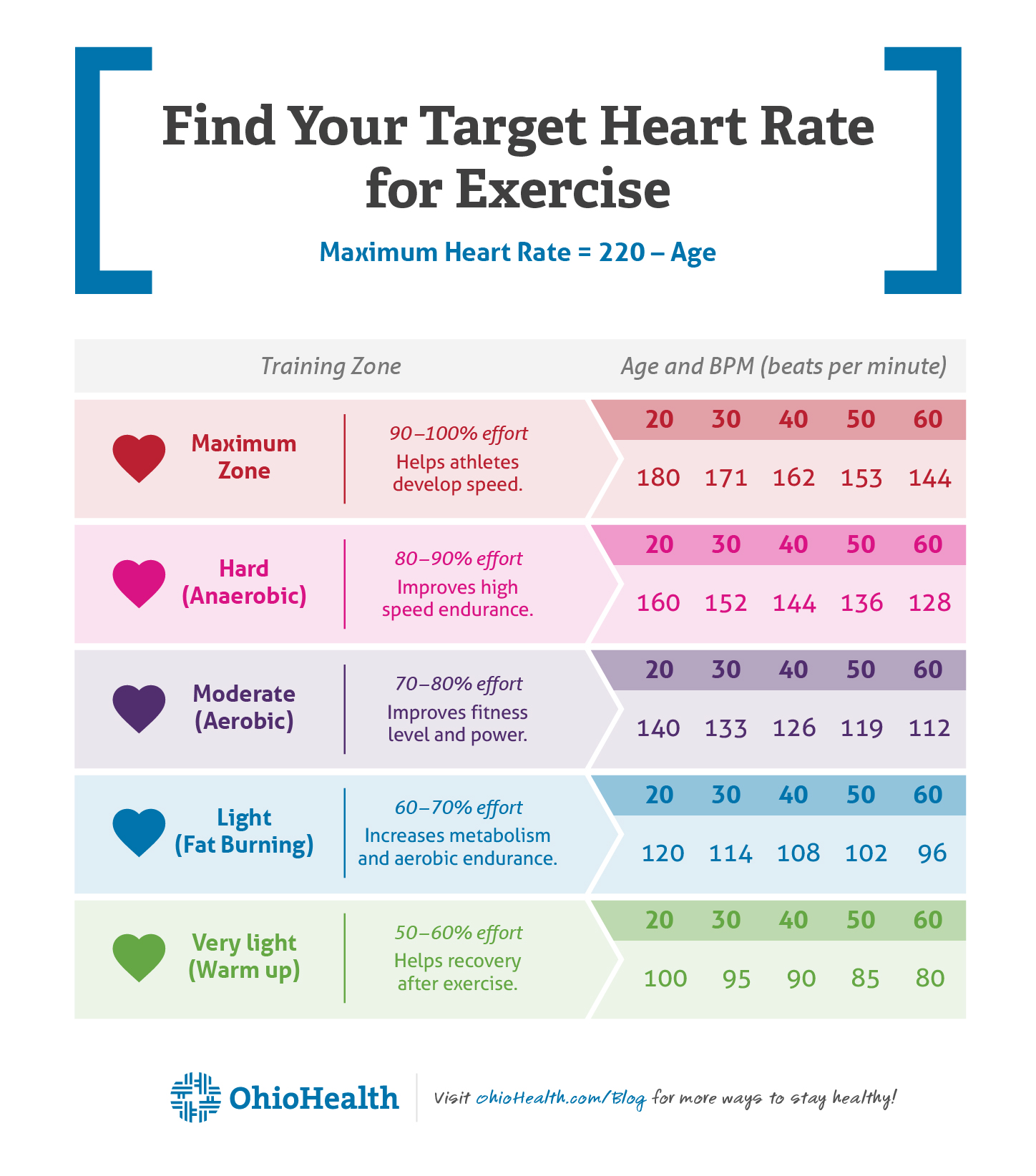Put that heart rate monitor to good use with this handy guide, based on age
The sweat is pouring and your heart is pounding. But how fast — or, how many beats per minute — should you shoot for while exercising? Amy Kleski, the Director of Retail Operations at the McConnell Heart Health Center and Neuroscience Wellness Center, recommends being aware of your heart rate targets, but not letting that be the only thing that determines your workout.
“The main thing is for people to pay attention to how they feel. We want people to have an awareness of what their heart rate is and their heart rate zones, but not to rely on it so much that they lose sight of how they feel while they’re doing the work, because that’s the biggest indicator of how you’re doing overall.”
Your Maximum Heart Rate
First, calculate your maximum heart rate (MHR), roughly 220 minus your age. This is the upper limit of what your heart can handle during exercise.
The Centers for Disease Control and Prevention suggest exercisers aim for a target heart rate of 70 to 85 percent of your MHR.
However, this is just an estimate for an average heart rate to shoot for. In fact, many people have a higher or lower MHR, sometimes by as much as 15 to 20 beats per minute.
“Even if at 85% of my age-predicted max heart rate, if I’m at 80% and I feel like I’m struggling, or definitely if I’m having any sort of symptoms, then that’s when you’re going to want to back off. Having the linkage between, ‘Yes, we should know where our HRs are,’ but being aware of how we feel is really the bigger thing while we’re exercising,” Kleski says.
Medications and Heart Rate
Several types of medications can lower your maximum heart rate and, therefore, lower your target heart rate zone.
Kleski also mentions the precautions to consider with heart rate zones. “If someone is on an anti-arrhythmic or a beta-blocker of any sort, they’re going to struggle to get their HR up. That’s even more indicative of paying attention to how you feel when you’re exercising and not relying on that heart rate zone.”
These medications may include:
- Beta-blockers
- Anti-arrhythmic medications
- Calcium blockers
- Digoxin
- H-2 blockers
If you’re taking any of these medications, ask your doctor if you need to use a lower target heart rate.
If you’re looking for more than an estimate, consider talking to your doctor or a personal trainer at the McConnell Heart Health Center.




